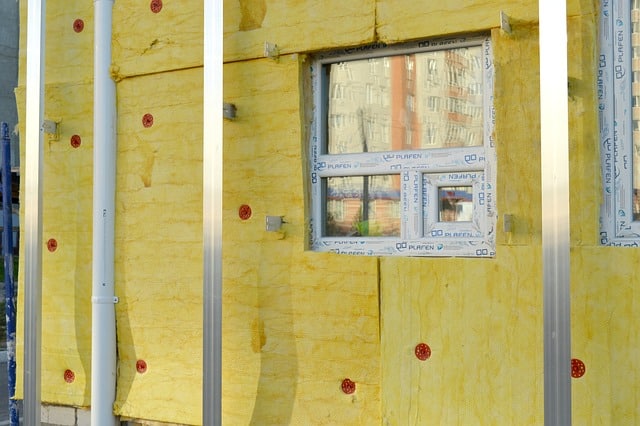Green tech is no longer just a nice-to-have for most homeowners; it’s essential. In an era of rising energy prices, a changing climate, and concerns about energy security, people want their homes to be as efficient as possible.
Rightmove’s 2023 Greener Homes Report found that improving the energy rating of a home from F to C could add up to 15% in value. According to the same report, 94% of those surveyed stated that it would be worth paying more for an energy-efficient property, and 83% of homeowners indicated that they would consider investing in energy efficiency.
Landlords are also eager to see green credentials in any property they buy, with 61% of them saying they would not consider a rental property with an EPC rating below C, up from 47% in 2022.
This represents a fantastic opportunity for property developers to make their projects as desirable as possible to potential buyers, while also adding value to achieve a larger return on their investment. Incorporating green tech from the outset can also reduce costs further, avoiding issues associated with retrofitting.
With that in mind, we explore some of the most popular green technologies and rank them based on the value they can add to your development.
Ranking Green Home Technology
Before we get into the details, let’s talk about how we’ve decided our ranking. Although the money spent < value added equation is excellent for property developers who are very numbers-focused, we should also consider the ‘saleability’ factor into things.
Although some investments may not add significant financial value to a property, they may make it much more attractive to a buyer, which has value in itself, especially in a competitive market.
So, let’s get down to (green) business.
1. Solar Panels
Solar panels are the undisputed king of adding value and massively improving the energy efficiency of a building. Under the Future Homes Standard legislation, almost all new build properties will have to include solar panels from 2027.
Despite lingering myths about their practicality in the UK, solar power is generally considered reliable and affordable. This is especially true in the South East, where we get the most average hours of sunlight per year. The only real stipulation is that the property needs to have an unshaded roof that ideally faces south to south-west. However, anything facing from east to west should still generate enough power for most homes.
How much value could solar panels add to my property?
A 10-panel system (about right for most families) should cost between £6,000 and £8,000, depending on the equipment chosen. Although estimates vary, research by Swansea University of 5 million property listings found that solar panels could add around 6.5% to the overall property value, on average.
Given that the average house price in the South East in 2025 is around £460,000, this could equate to between £20,000 and £30,000! However, more conservative estimates put this figure at around £11,500.
2. Insulation
Although a given on most new build homes, investing in effective floor, wall and roof insulation offers some of the best bang for your buck you can get. Given that you have free rein over the type and amount of insulation you add, and there are no additional costs from retrofitting, it’s a no-brainer.
You can expect to factor in the following costs (per m²) into your budget, depending on the insulation you choose:
- Loft (Blanket): £5–£10
- Loft (Loose Fill): £8–£12
- Cavity Wall: £13–£30
- Internal Wall: £60–£100
- Solid Wall (External): £60–£100
- Floor: £20–£40
- Draught Proofing: £3–£6
- Pipe Insulation: £1–£2 (per metre)
Will insulation add value to a property?
In return, the new owners could expect to save between £100 to £700 annually on their bills, depending on the insulation chosen and their electricity usage. While it’s hard to calculate the impact on home value, the additional desirability for any prospective buyer is clear.
Going further, external wall insulation can significantly improve efficiency and help reduce mould. However, it is a significant investment that may be more suitable for higher-end developments. According to Checkatrade, you could expect to pay the following amounts:
A 2020 UK Government Report found that external wall insulation and solid wall insulation (internal or external) could each add around 3% to the value of a property. Whether this is worth the investment will need to be decided on a project-by-project basis.
3. Air & Ground Source Heat Pumps
Heat pumps are an eco-friendly way to heat your home using renewable energy. The pump takes residual heat from the ground or the air and uses it to heat a water tank. This is then used in your central heating and to give you hot water.
While they can have their drawbacks when retrofitted to older properties, they really come into their own in a well-insulated and well-designed new build, especially if it also has underfloor heating. Air source heat pumps are by far the most common and cheapest, and are effective down to -20C and beyond. More than enough for our winters.
A typical air source heat pump can cost around £11,000, but as part of the Boiler Upgrade Scheme, the UK Government offers grants of up to £7,500 to install one. This grant isn’t typically available for new build homes; however, in cases where a builder has been contracted by an individual to create a custom build, or where a private individual has built their own property, they could still be eligible.
Heat pumps and property values
Data suggests that a heat pump will increase the value of a property, but sources differ on by how much. As part of an overall push to increase the EPC rating, they will certainly help. However, on an individual basis, you could expect an increase of anywhere between 2% and 7%, although between 2 and 4 is probably more realistic.
Whether this increase is worthwhile, given the investment, is up to the developer to decide. However, when it comes to desirability, many buyers consciously look for energy-efficient tech, so it may increase the chances of a successful sale.
4. Triple Glazed Windows & Doors
Another big investment in efficiency can come from triple-glazed windows. While double-glazed windows are still fine for most people, investing more can bring a heap of energy efficiency benefits, such as around 50% better energy efficiency, increased security, and reduced noise for the occupants.
However, these benefits come at a cost. Data from the Federation of Master Builders suggests the following prices as of October 2025:
Will triple-glazing add value?
A word of warning… Data on the value added by triple-glazed windows is hard to come by, which suggests that it may not be a significant amount. Also, the real benefits are often only noticed in cold climates like Scandinavia (or Scotland). In the South East, with our mild winters, the investment may not be worth it.
Instead, choosing A or A+ rated double glazing may be more cost-effective.
Honourable Mentions
Several other types of green tech could be considered as part of your development project to increase the desirability and value of the finished home. For example, smart thermostats, energy-efficient LED lighting, and low-flow toilets may all appeal to certain buyers.
Additionally, installing an EV charger is a low-cost and low-risk way to add desirability, especially given that the UK will ban the sale of new ICE (Internal Combustion Engine) vehicles by 2030.
Funding Your Green Property Development
We’ve written a detailed guide about Securing Development Finance for Green Projects, but in the meantime, we’re always keen to talk to developers about their next project. We’ve financed countless properties across the South East, and if you’re looking for funding, we can usually provide an Offer in Principle within seven days.
Contact us today to find out more.






